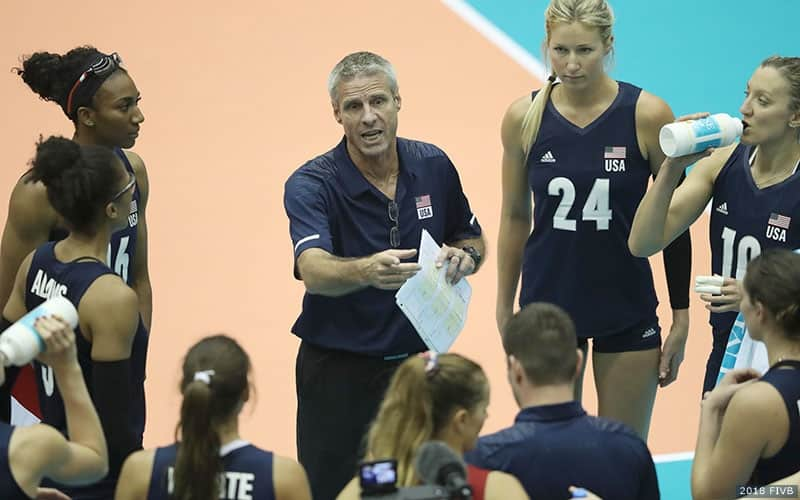
Originally published in VolleyballUSA, Fall 2014 issue.
You'll read and hear from any number of experts how important it is in life to maintain a positive attitude. Agreeing with that is easy. Doing it, not so much.
I've had to look on the bright side of tough losses many times in my volleyball career, both as an indoor and beach player and as a coach. Most recently, it happened when our U.S. Women's National Team came up short in August at the FIVB World Grand Prix. We didn't make the six-team final round and that was a big disappointment for all of us - coaches and players included.
But even in the wake of defeat, there's no upside to staying in a funk. Much as you may not feel like it, you have to bounce right back up, evaluate what went wrong, work hard to correct it and move forward with an optimistic attitude.
When we returned home from the Grand Prix, we knew a bigger tournament awaited us: The FIVB World Championship, which began in Italy on Sept. 23 and is one of the three majors of the quadrennial. Priority 1 was working on things we needed to improve, like serving and transition hitting. We also had to remind ourselves that we're going to get knocked around and punched in the face at the World Championship and at any major tournament. These are tough, tough competitions that include the world's best teams. There's no such thing as a smooth ride.
Part of developing the ability to stay positive is competing frequently in practice so you get comfortable with the pressure of high-level play and the ups and downs of battling challenging opponents. As much as possible, we add a competitive element to our scrimmages and drills.
Another aspect to staying positive is preparation. I read an article recently about how a military unit - I believe it was either a SEAL Team or a Delta Force - uses a balanced approach to plan its operations. That includes to components. One, not surprisingly, is creating a detailed plan and continually reviewing it. The other is anticipating what might go wrong with thtat plan and coming up with contingency plans.
Military planning is very much like preparing for a volleyball match. You have a plan, but then you need a series of secondary plans in case Plan A goes awry.
Take, for example, a poor start at the beginning of the match. Maybe your team is down 6-0 or 7-1. If you've talked about that possibility ahead of time, you're likely to deal with it a lot better than if you just prepare a game plan and hope for the best. After losing a bunch of points early in a match, there are a lot of little things you can do as a player to maintain composure. One is to huddle with your teammates after each play, looking each other in the eye and reinforcing the idea that you're all going to weather this storm together. The norm when things go badly is usually to get quiet and not huddle, but success depends on engaging each other and sticking together.
As I said before, I understand that it's difficult to stay positive when things aren't going well. But my final thought is this: Staying positive in volleyball isn't nearly as hard as staying positive when faced with serious life events. A book I got a lot out of was Viktor Frankl's 'Man's Search for Meaning.' It's a first-person account of his experience as a prisoner in an Auschwitz concentration camp during World War II. It was a living hell, but one of his main themes is this: You can't control what happens to you but you can control your reaction. He concluded that prisoners of war who made the best of things generally lived longer lives.
There's no comparison between volleyball and war. None. But the lesson of maintaining a positive outlook that Frankl shares is one that can be applied to anything in life, even sports. If you make the best of a situation and rise to overcome it as a collective force with your teammates, you're likely to be happier and more productive and rise to a greater level of achievement.
